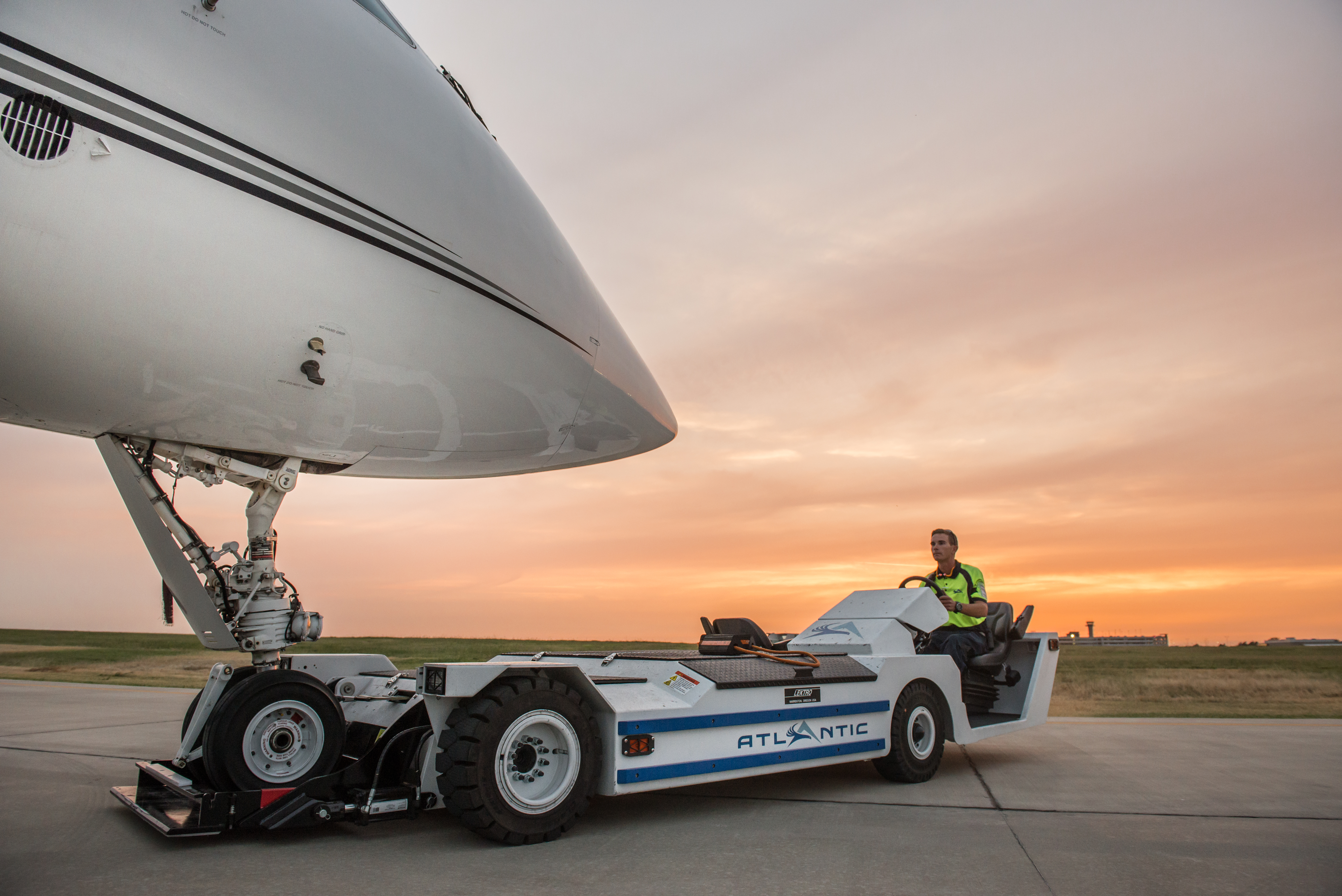It’s Monday morning, and between the sounds of airplanes arriving and departing, things are noticeably quieter at Atlantic Aviation’s facility in Aspen, Colorado. Electric airplane tugs and fuel trucks whir away on the Atlantic ramp, virtually silent. Diesel generators have been swapped out with quieter, emission-free, battery-powered ground power units (GPUs). It’s all part of a new standard for sustainability that Atlantic Aviation is ushering in with accurate, real-time emissions data.
Atlantic Aviation is a leading provider of facilities and services for general, commercial, cargo, military and emergency services aviation customers in North America. The company runs more than 100 fixed-base operations (FBOs) that work in close partnership with local airports large and small to provide aircraft fueling, hangar, private terminal, and ground operations services for their clients. Each FBO is a complex operation. Imagine bustling arrays of pilots, service technicians, caterers, customer service professionals, and specialized fleets of aircraft tugs and refuelers.
Brian Corbett, Atlantic Aviation’s Chief Commercial & Sustainability Officer, is keenly aware of the aviation sector’s responsibility to combat climate change. Since 2022, Corbett’s team has committed Atlantic Aviation to building a robust sustainability strategy focused on commercially viable solutions aimed at reducing operating emissions and enabling its customers to meet their sustainability goals. They’ve made Sustainable Aviation Fuel (SAF) available across the network, through Atlantic Aviation’s SAF Marketplace. They expect to sell 150 times more SAF in 2023 compared to 2022.
And to track their decarbonization progress, Atlantic Aviation uses NZero to aggregate their emissions data at over 100 FBO locations across the country.
The need for scale
Prior to partnering with NZero, Corbett’s team managed to compile Atlantic Aviation’s 2022 carbon emissions using legacy bill payment tools and spreadsheets. It was a big challenge. It also wasn’t working: when the team tried to validate their data, it was impossible to tell where any inaccuracies might be hiding.
“Our biggest challenge was developing a reliable full-year emissions baseline across all 100+ locations, and confidently tracking tangible progress over time,” said Corbett.
To truly gain a perspective on addressing their emissions, they needed to figure out how to get accurate emissions data – at scale – and do it in less than 3 months.
“The sheer scale was probably the most daunting part,” said Eric Newman, Atlantic Aviation’s VP of Commercial Strategy & Sustainability. “When you lay out the math of how many sites we operate, and the number of utilities and meters we have for each site, it’s a lot of work. We didn’t have someone to manually gather all that data.”
Atlantic Aviation needed a data solution that allowed them to integrate their emissions data streams in a “one-and-done” kind of way. They also needed data to be accessible to every team member across their FBO sites to support teams in enacting commercially viable emissions reduction solutions.










